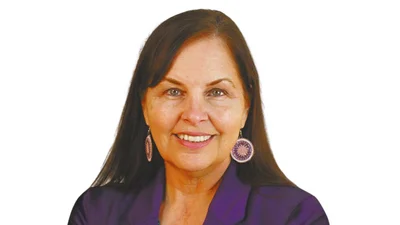Dr. Andrew Armacost, President | University of North Dakota
Dr. Andrew Armacost, President | University of North Dakota
Medical students and faculty from the University of North Dakota (UND) School of Medicine & Health Sciences are working to address the clinical needs of residents at the North Dakota State Penitentiary in Bismarck. The program, part of UND’s commitment to community service, gives third-year medical students an opportunity to participate in a Department of Corrections & Rehabilitation (DOCR)-based course called “Community Intensive Internal Medicine.”
Dr. Stephanie Gravning, Correctional Health Authority at the penitentiary and a community faculty member for UND, coordinates this rotation. She emphasized the importance of recognizing incarcerated individuals as “residents,” noting that language change is significant for both rehabilitation and healthcare delivery. “That’s what we used to term people who are incarcerated, but now they’re residents,” she explains. “They live here. This is their home.”
Gravning described the range of medical services provided on-site: “We do diabetes hypertension, annual physicals,” said Gravning. “We’re doing colon cancer screening and sleep studies on-site. We have people confined to wheelchairs. We have feeding tubes. We have IV antibiotics. Everything.”
The rotation focuses not only on clinical care but also on understanding how health systems function within correctional settings. “We do try to get some clinical care in for students, but it really becomes a programs overview,” continued Gravning. “How do we provide a standard of care? What’s our structure? How do we use our support staff to the edge of their certifications to be able to maximize their availability and their ability to provide services? It’s a unique program.”
Medical student Mercedes Hoffner said her experience exceeded expectations: “Getting to meet some of the people living here, was just, honestly, an inspiring experience,” said Hoffner. “I’m getting a good sense of how the health system works, and how they streamline things here. It’s not only cost-effective care, but also shows me evidence-based medicine in action. And seeing the administrative side has made this a really comprehensive experience.” She added that exposure to health systems management gave her hope after witnessing progress in rehabilitation.
The rotation began in 2003 under Dr. John Hagan and expanded when he became third-year clerkship director for UND’s Southwest Campus in 2008. Hagan explained its value: “These students choose these opportunities,” Hagan said. “As a result, they develop superior interviewing and examination skills, and are forced to utilize critical reasoning, structured differential diagnoses and evidence-based medicine.” He noted that UND medical students consistently rise to meet the challenge.
Luke Roller, M.D., Associate Dean for UND SMHS Southwest Campus and 2012 graduate, is leading efforts with volunteers to improve ultrasound diagnostics at DOCR facilities—an initiative designed both for patient convenience and cost efficiency by reducing hospital transports.
“I was talking with Stephanie and she wanted more ultrasound services out there,” said Roller about restarting dormant equipment at the facility without dedicated radiology staff or technologists onsite.
Roller explained his motivation: “I feel very strongly about this: I got my education from and for the state of North Dakota,” he said. “It’s not like I paid the entire cost of my education alone… Because of that I’ve always felt like I owe the people here something.”
Hagan stressed broader public health implications: "Corrections health is public health at its finest," he added… "Since almost all DOCR inmates will be released back into the community, we’re providing care and modeling best health practices for our future neighbors or co-workers," Hagan explained.
Gravning credited her own career path partly to mentorship during her internal medicine rotation at DOCR: "Without that and the mentorship and guidance of Dr. Hagan, my life in medicine would be drastically different – and not nearly as cool."
UND's involvement with correctional healthcare reflects its mission outlined in its strategic plan core value on service—to address regional needs through research collaborations.


 Alerts Sign-up
Alerts Sign-up